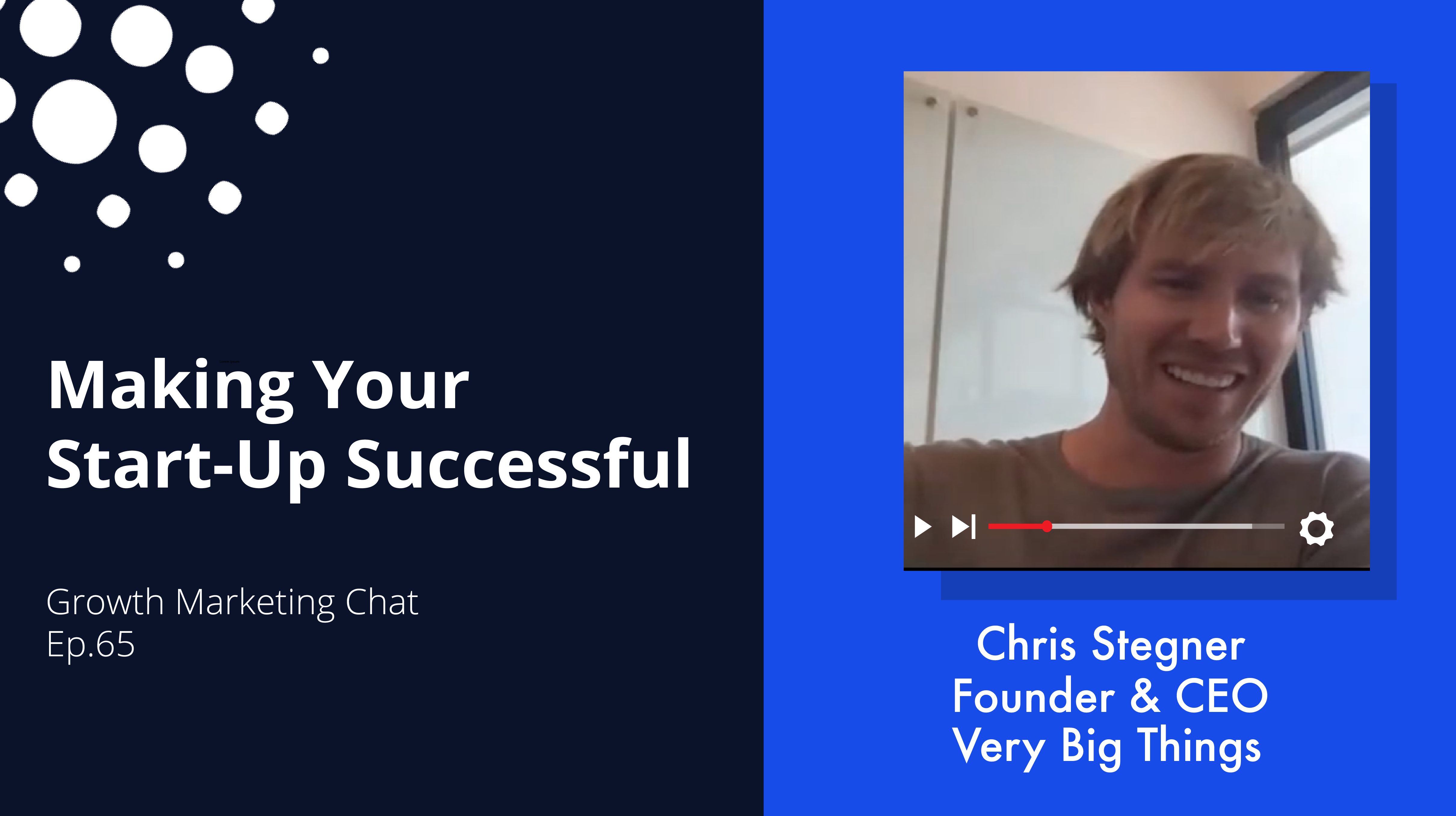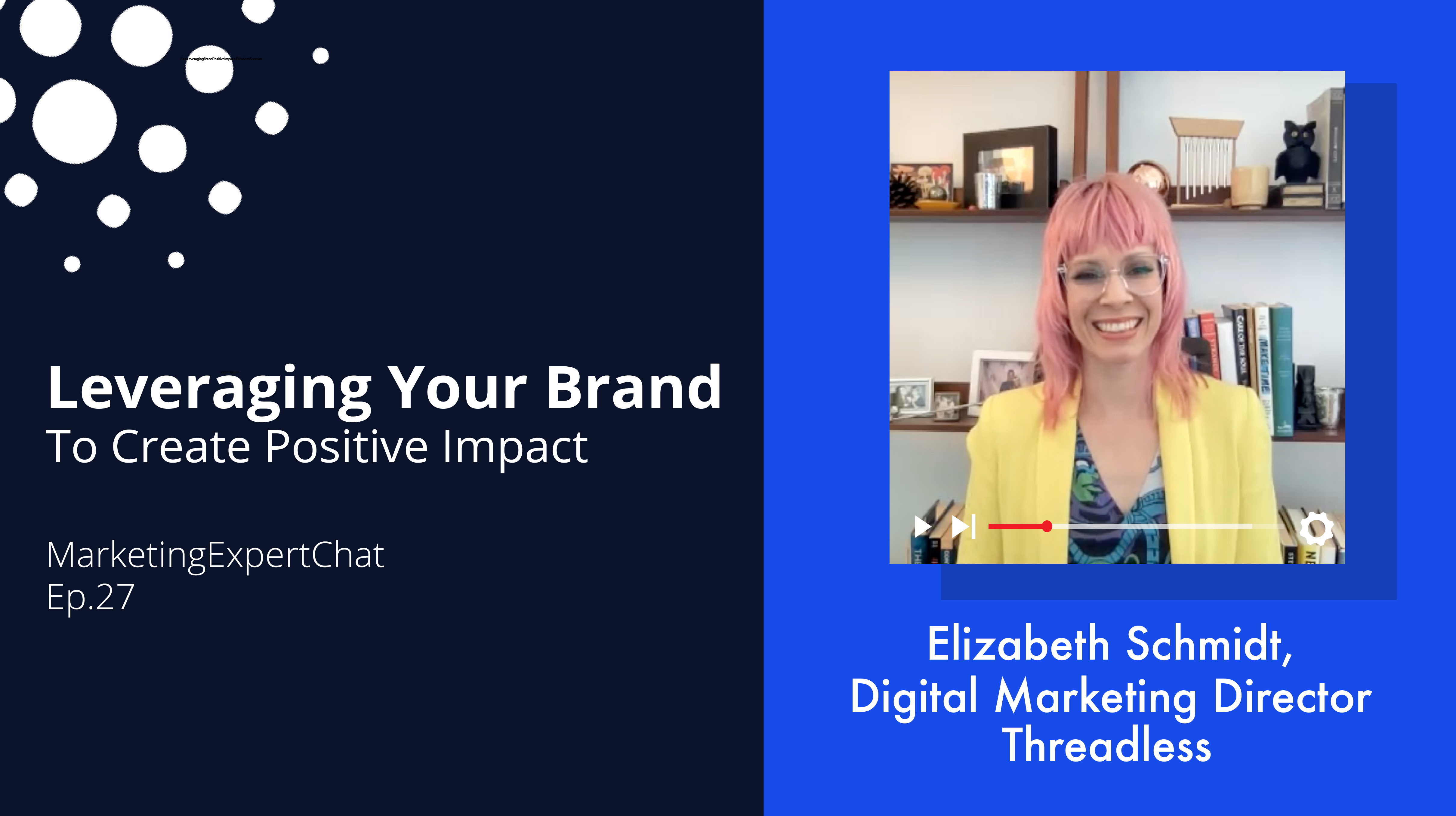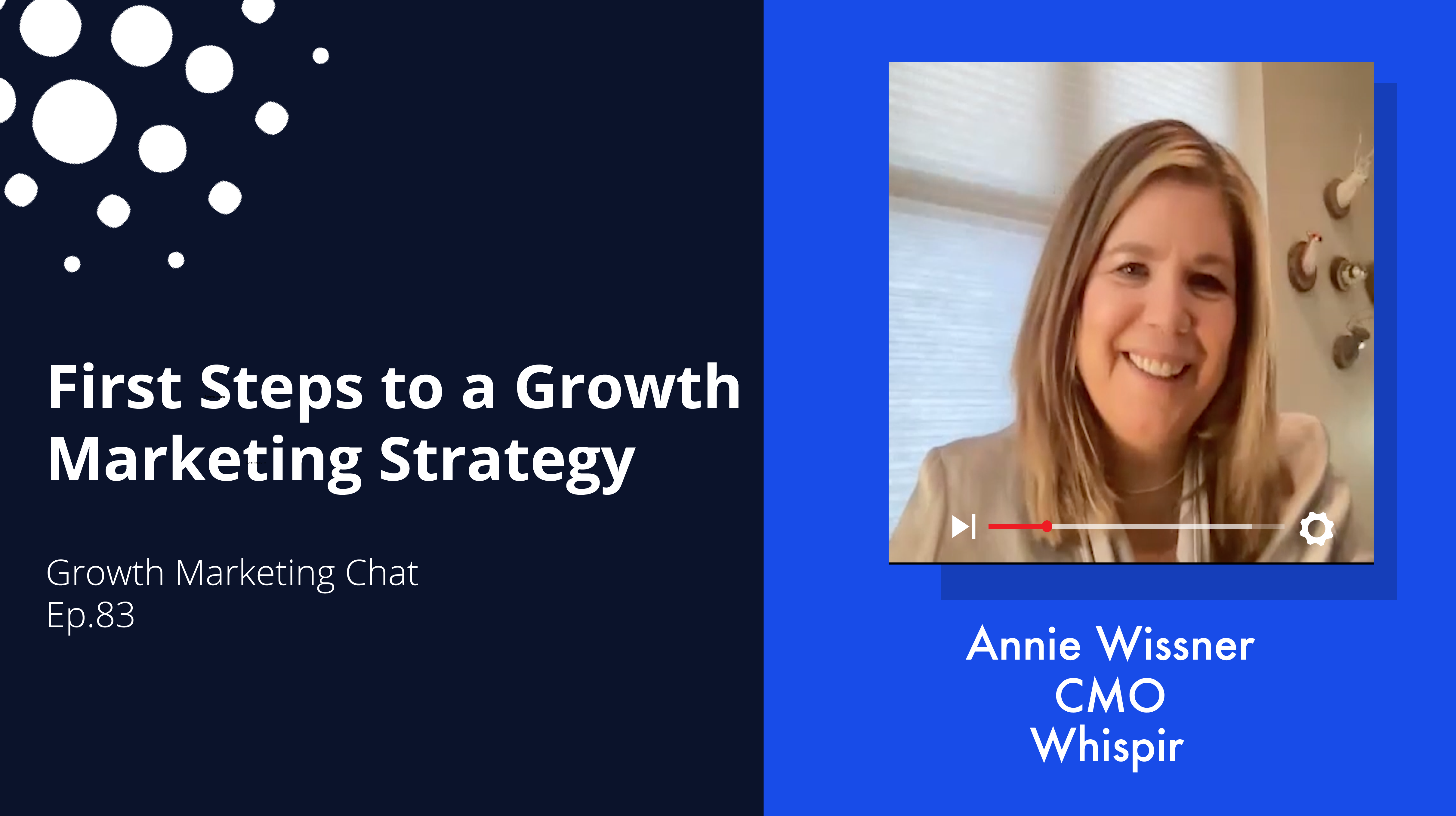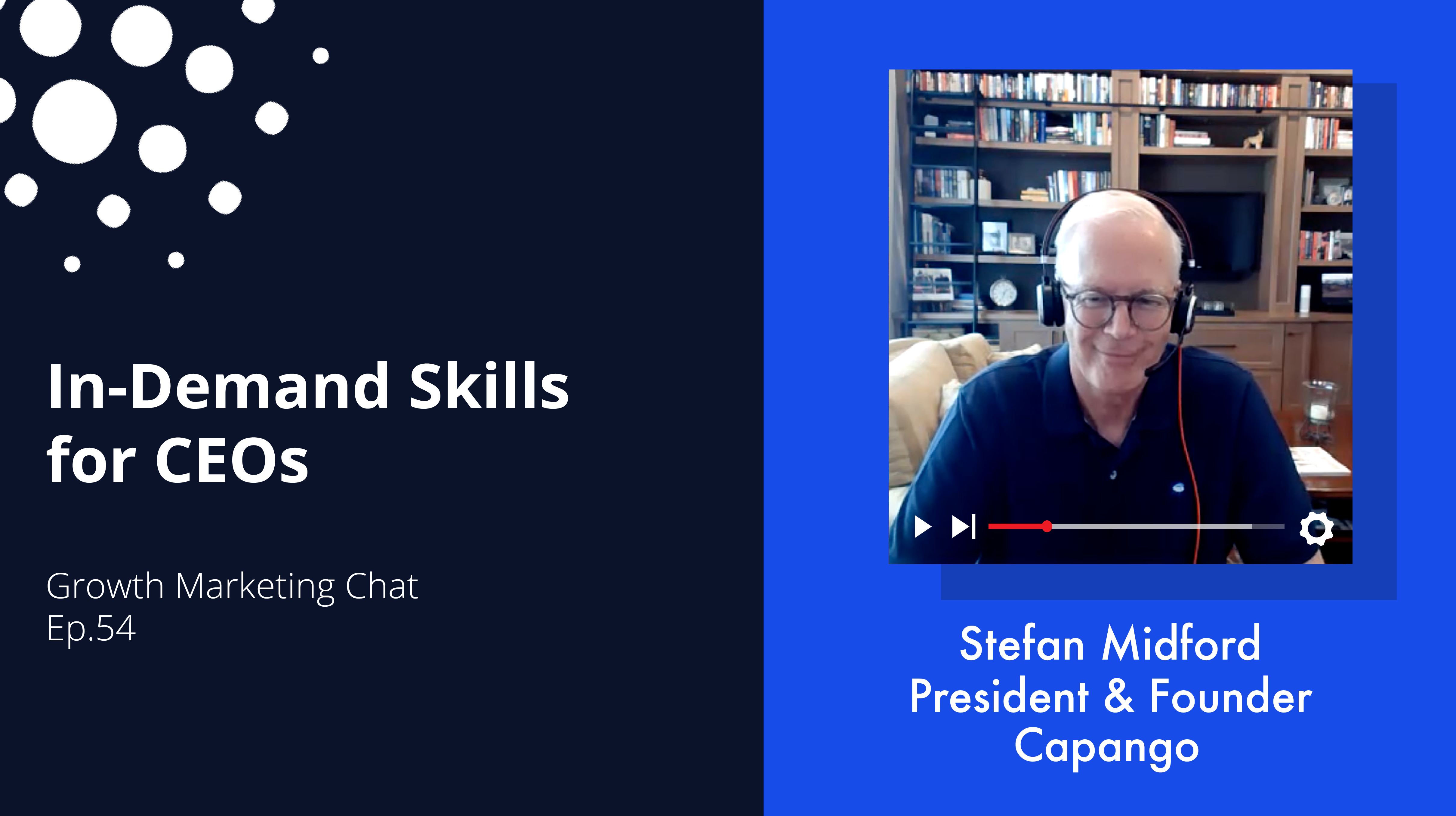Start-up marketing is a beast of its own that comes with unique challenges and opportunities. While it’s often a rewarding career path, it’s not always for everyone.
Leading marketing at a start-up can require you to wear countless hats and assume roles that may be outside a typical marketing leader’s day-to-day responsibilities. It demands creativity, flexibility and a forward-thinking disposition.
Are You a Good Fit for Start-Up Marketing?
Curious if it’s a career path you’d be interested in taking?
Shira Warshavski, VP of Marketing at Atidot, offers up insight and personal experience that may be able to help you decide! In this episode of our Growth Marketing Chat, she shares the ins and outs of leading marketing in a start-up, such as the challenges and benefits associated with:
-
Job stability, responsibilities & specializations in growth marketing
-
Managing small budgets
-
Messaging & positioning your offering in content marketing
-
Receiving awards from industry associations
Watch her interview now to determine if your professional goals align with the requirements and expectations for start-up marketing leaders.
Video Transcript:
CAROLINE: Hi. Today, I am here with Shira Warshavski. She’s the VP of marketing at Atidot, and Shira has worked for several start-ups and really loves working with start-ups. Shira, thank you so much for being with us today.
SHIRA: Hey, Caroline. Thanks for having me here. I’m really excited to be here.
CAROLINE: Great. So today we’re going to talk about start-up marketing and what it’s like to work for a start-up. And so, my question for you is, you know when a marketer is trying to decide, okay, well should I make the leap and go and work for a start-up? What should you think about, like, if you could share some of your experience, you know, of your day to day and how do you decide if the start-up life is right for you?
SHIRA: Okay. So first I’ll introduce myself in a few words and I’ll just say that I’m the VP marketing of Atidot, like you said and Atidot is a start-up that does AI and machine learning for the Insure Tech, for life insurance companies. And we are mostly about B2B marketing, and we target, our target audience is VP and C-suite just to give you a sense of how it looks like. And those executives usually work for you know, insurance companies. So, in my career, I always worked, I actually worked with large public companies like American Express and Amdocs. And I also worked with start-ups that were, you know founded by VCs and some of them I was even one of the first employees. So that was really exciting.
Personally, I always preferred working with start-ups despite some disadvantages that they may have in general start-ups. They often suffer from lack of structure and the lines of responsibilities are somewhat blurry, but I always found out that that was an advantage for me because you can pick and choose what you’re really interested in doing and what matches your personality best. So, I personally never fear from the unknown and I tend to not to focus on job security. So, stability has never played a role in my decision-making. The downside of working for the start-up, obviously especially in an early-stage start-up like the one I’m working with right now is that usually you have to manage with a very slim budget. So, you know, that could be a disadvantage. But when I look at it, I always feel like it’s a challenge and it usually pushes me to be more creative. So, to overcome that challenge I found out that platforms such as Fiverr and Upwork would usually, you know, get me a long way in terms of producing things that are more… that are imperfect, but are cost effective. So that is something, a little trick that I use in my work to do things with a very, very low budget.
Right now, there’s another challenge of working for a start-up that is an Insure Tech start-up because, on one hand we’re promoting innovation and cutting edge technology that’s based on advanced analytics methodologies but we’re selling to a very conservative world as you can imagine, I’m sure it, the people that we talk to are not necessarily technology savvy. They are very smart, and they understand data science but they’re not very familiar nor do they care for technology. So, to overcome that we kind of balance everything out and our messages and our presentations and the content that we try to focus on explaining business value and explaining the ease of use. And in general, I feel like that’s a better approach overall because in today’s world, you know, people just don’t you know, they want to have everything in their fingertips, and they don’t want to do a deep dive before they… before a later stage in the sales process. That usually works for us.
Another thing that I think helps us overcome that challenge is that, you know, if you win an award, so if your company, your start-up wins an award, for instance we won Gartner Cool Vendor Award in Insurance in 2019. So, you know, that helps us kind of stand out, that does a lot of the marketing work for me because my competition is mostly large consulting companies. And so, in generic AI providers, so that helps us, you know promote our products better.
CAROLINE: And that adds… awards are wonderful for adding a level of credibility in the start-up world. It can be underutilized, but definitely that’s something that works really well for start-ups.
SHIRA: Absolutely. And Gartner in particular, I don’t think there’s a marketing person that doesn’t know Gartner. Gartner has a lot of credibility as an analysts company because their awards are usually unsolicited. And, you know, especially with start-ups like we’ve done nothing to, you know to gain their attention, you know, other than, you know quarterly briefings or something. And we actually found out, we found out pretty often that, you know, insurance companies or partners, technology, partners, even VCs they address us because they’ve read about us in Gartner. So, so that was very, you know, that as a marketing person it’s a great thing to have.
CAROLINE: Right, right If you’re going to win an award, this is probably one of the best ones to win because first of all, it’s real it’s not a pay for play kind of award. And then people trust it you know because it’s real.
SHIRA: Absolutely. And we’re kind of, so when… if you’re a marketing person you would try to find the right niche that will help you know, win those awards. And it’s sometimes often it’s a matter of positioning the technology in a certain way. So, you know, the technology could fit into different verticals, could fit into different niches. But if you find the right one you can be unique in that space. And this is where, you know you can win a lot of awards and get credibility and get people and companies to trust you.
CAROLINE: Right. Right. So, do you think being able to do messaging and positioning and really like understand the markets is pretty critical when you’re going to go and work at a start-up?
SHIRA: I do. I think, I think it’s, it is critical. I think finding the right positioning and the right messages is a journey and being in a start-up that is nimble and flexible and have it usually I usually work with great very smart people. It really, it’s, it’s a lot of fun doing that journey with them to find the right messages and the right positioning. And what’s nice about start-ups is that you can always pivot. And if you know, one direction doesn’t really materialize then you can easily make a change in the strategy and go in a different direction. And I think this is where start-ups usually succeed is when they are able to understand pretty quickly, you know, where is the pain? What are they solving? Who are they addressing? What are, what should they say and so forth.
CAROLINE: Yeah. Yeah. I think being able to really try and test go-to-market strategies and test messaging, you know I think one of the things to think about for people are starting at a start-up is do I need things to be like really defined do I like to have, like, this is my target audience. I know this is my target audience and this is the kind of a go-to-market strategy. And this is the kind of messaging that we use. And then it’s all about just improving. Then start-up world is not going to be for you because in start-up world, it’s like, okay, well here are our hypotheses. We’re going to try it. And then you need to be really quick changing it if it’s not working. And there is a lot of iteration.
SHIRA: I agree. And I think in general, if you try to, if you want to find out if a start-up is better for you than a big company then you really have to, the key is to know yourself. Okay. The key is to understand your personality. You know, some people feel comfortable with larger organizations, or they get a lot of deep understanding and their specific niche, and they develop expertise and it’s in a certain area and they can enjoy the stability of, you know, the advantages of stability. They enjoy the fact that there are resources and there are large budgets and there’s a lot of support. Then other people such as myself, you know, I thrive on a little chaos that is a result of a changing environment which is always part of being in a start-up. And I find a lot of interest also in juggling many projects at the same time. So that isn’t always something that people like to do.
I personally, I prefer that. I like being hands-on. I like doing everything from the company strategy all the way down to how the website looks like, or even, you know writing the scripts for the animated video that I’m going to do. It’s like, it’s a lot of fun doing all the levels of things that you have with a company maybe for someone else, you know, it’s like it’s a bit challenging to write articles on one hand and be really knowledgeable about the vertical that you’re addressing, but then also to do the graphics for the website, for instance. So, yeah, so at Atidot I do everything and I kind of liked that about the company that I work for but really, if you want to sum it up it’s all about how well do you know yourself? What are your strengths? What are your weaknesses? How comfortable do you feel in an unstructured environment? And if you understand all that then you can find the right fit for you.
CAROLINE: Exactly. All right. Well Shira, thank you very much for being with us today and participating, I really appreciate it.
SHIRA: Thanks, Caroline. It was a pleasure.





